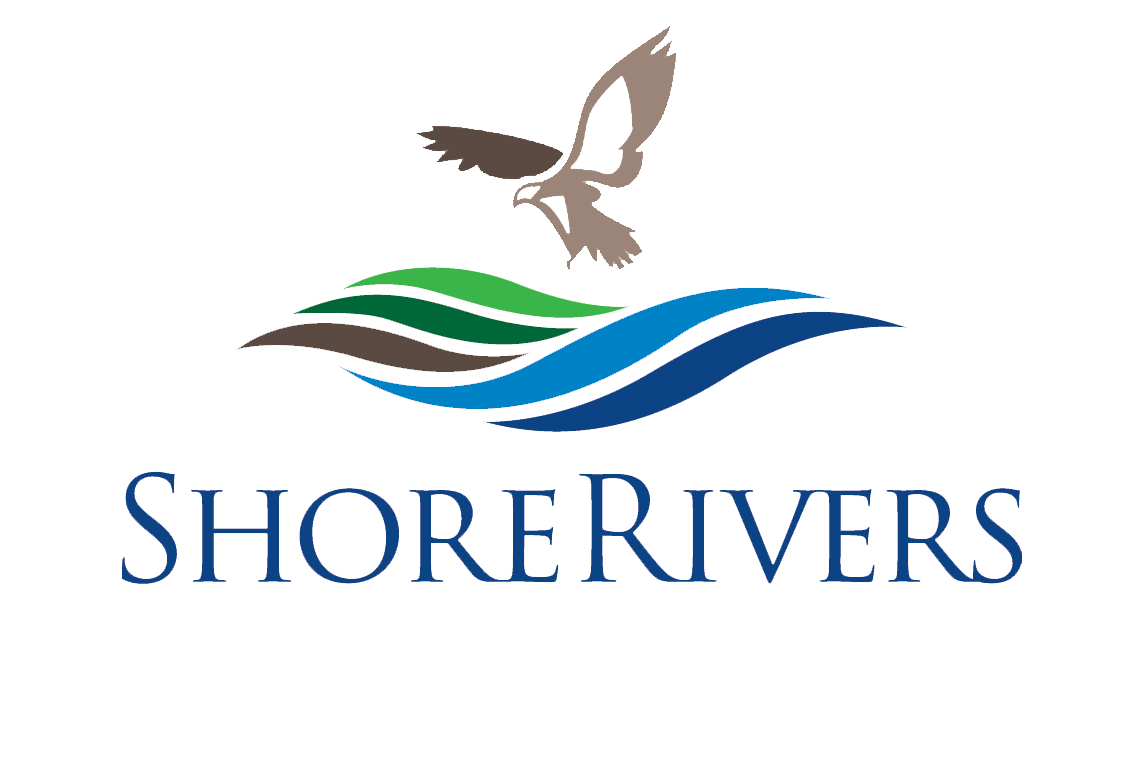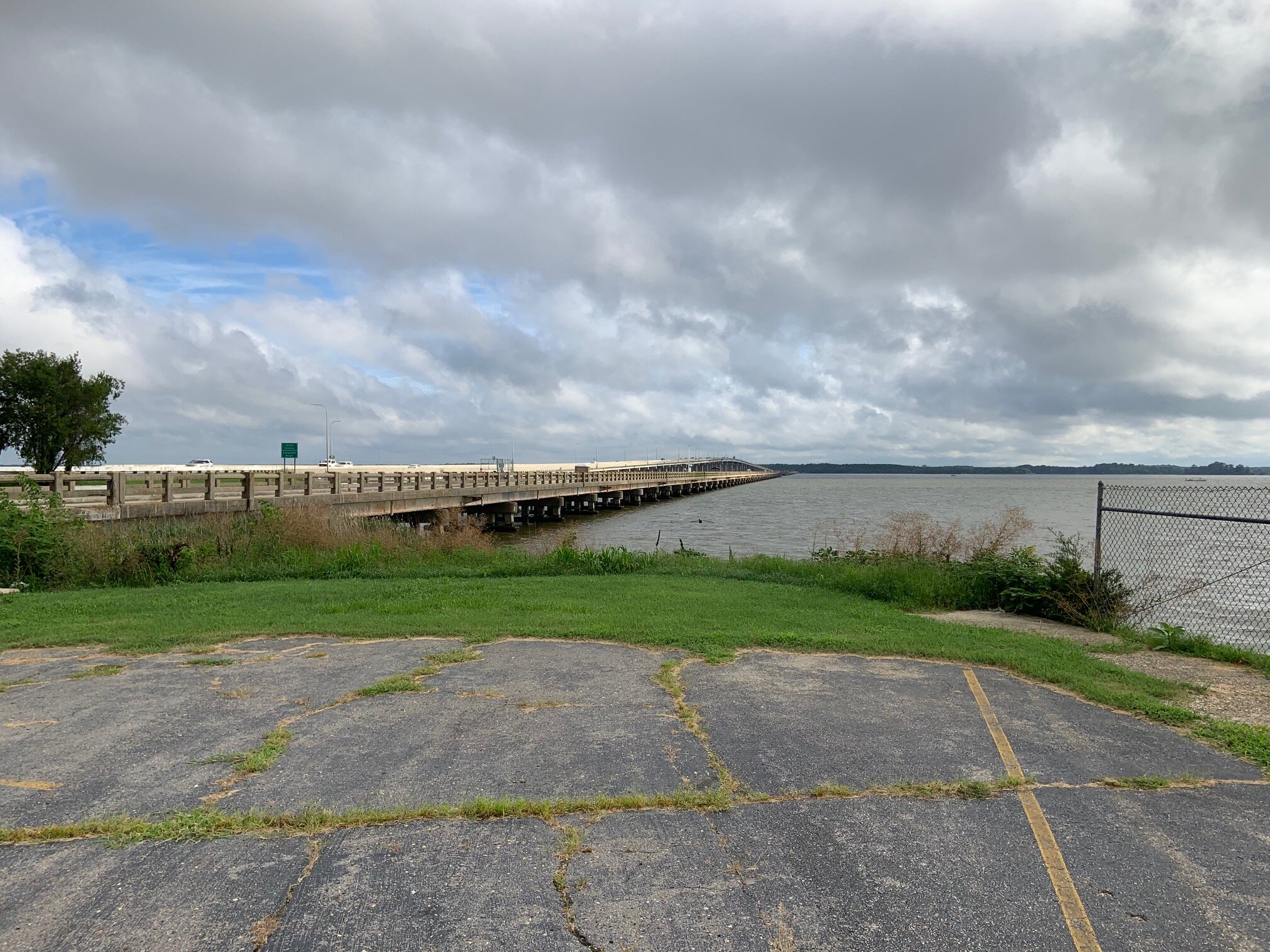ShoreRivers has received grants to work with two regional organizations to better manage and treat stormwater runoff from urban parking lots. Urban stormwater runoff is one of the most damaging threats to urban waterways because it contains nutrients and other harmful pollutants, and can contribute to localized flooding.
The American Legion parking lot will be upgraded using the “Dig Once” concept, which invests in gray infrastructure such as resurfacing, along with matching funds for green infrastructure, such as vegetated bioswales.
In Dorchester County, the existing parking lot at the American Legion Post 91 in Cambridge will be upgraded with vegetated bioswales and native trees to manage and treat stormwater runoff, and native grass plantings along the shoreline to stabilize the eroding bank. Post Historian Richard F. Colburn writes, “Five years ago we had a fire at the American Legion Post 91 that closed our post and necessitated an overwhelming amount of repairs and restoration, including to the riverside parking. Fortunately, with the help of ShoreRivers, services from Rauch Engineering, and grants from Chesapeake Bay Trust and a Maryland State Bond Initiative, the community came together on the final leg of the project. We are now able to retrofit our waterfront parking lot in a way that protects and enhances the water quality of the precious Choptank River.”
This project meets many of the action items in the Cambridge Clean Waters Advisory Committee’s report “Moving Toward Clean Waters: A 10-Year Plan.” The parking lot will be resurfaced in part with porous asphalt and sloped toward a bioswale to redirect stormwater runoff. The bioswale will be constructed along the edge of the parking lot with a channel of native plants to help increase biodiversity and wildlife in that area. The bioswale will slow and absorb the stormwater runoff and the vegetation will help filter the water before it drains into the Choptank. Native grasses planted between the parking lot and the water’s edge will stabilize the bank.
Retrofitting a stormwater outlet box
photo credit: Underwood & Associates, Inc.
Similarly, in Kent County, a collaborative project between ShoreRivers, Washington College, and the Town of Chestertown proposes to retrofit a stormwater detention pond and associated drainage on the northern edge of the college’s campus. This project is part of a comprehensive stormwater management plan that ShoreRivers is preparing for the historic waterfront town. Both the stormwater management plan and the Washington College retrofit designs were funded by the National Fish and Wildlife Foundation, with a match from a private donor to complete engineered designs for the campus retrofits.
ShoreRivers recently installed several of these retrofits as mini bioretention basins in the college’s North Commons parking lot, with funds from Chesapeake Bay Trust’s Green Streets, Green Towns, Green Jobs grant program. These mini practices were designed to capture and hold water so biological activity can remove nutrients as well as pollutants coming from asphalt and vehicles before draining into the stormwater pond that eventually discharges to Radcliffe Creek, a tributary of the impaired Middle Chester River. Implementation funding proposals are in progress for the remaining practices, which are the first of a number of improvements the college hopes to make on its campus that will have water quality and habitat benefits and serve as demonstration projects to the large audience the college serves.
Filling basin with bioretention media
photo credit: Underwood & Associates, Inc.
The Cambridge and Chestertown projects are examples of using the “Dig Once” concept to leverage private investments to increase water quality protections. American Legion Post 91 and Washington College each invested in the gray infrastructure components of the upgrades—resurfacing and curb placement—providing the required matching funds for the green infrastructure components paid for by grants from Chesapeake Bay Trust.
By installing the projects’ green components at the same time as the gray infrastructure elements, upgrades cost less than if the parking lots were later retrofitted with green infrastructure. According to Chester Riverkeeper Annie Richards, “Leveraging private investments to help tackle urban runoff is a strategy that will likely become more powerful as we get closer to the 2025 deadline for the Chesapeake Bay Cleanup.”



